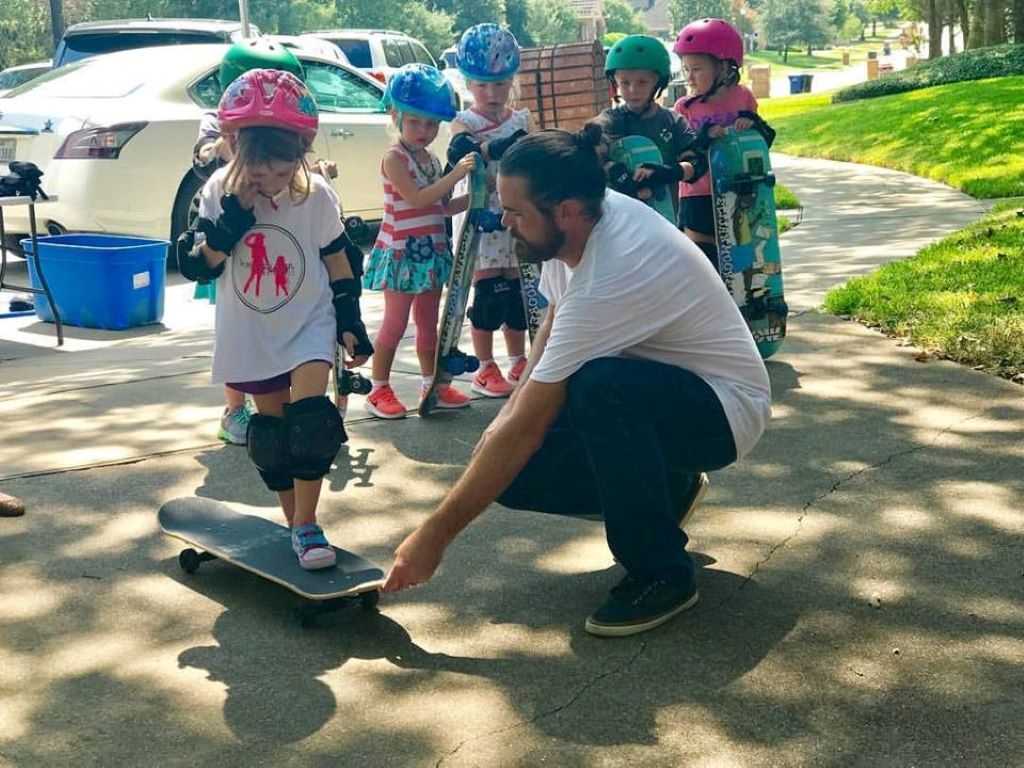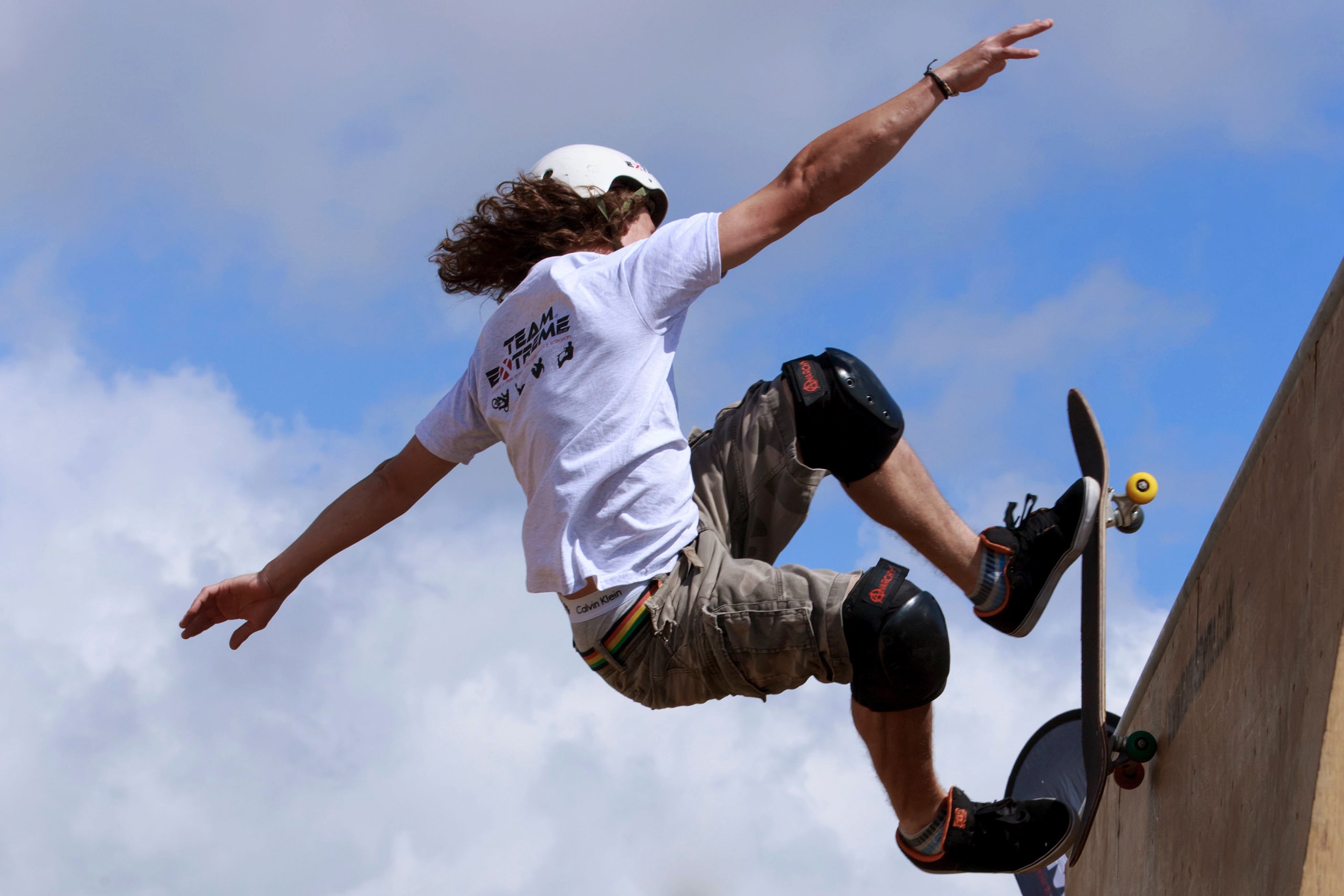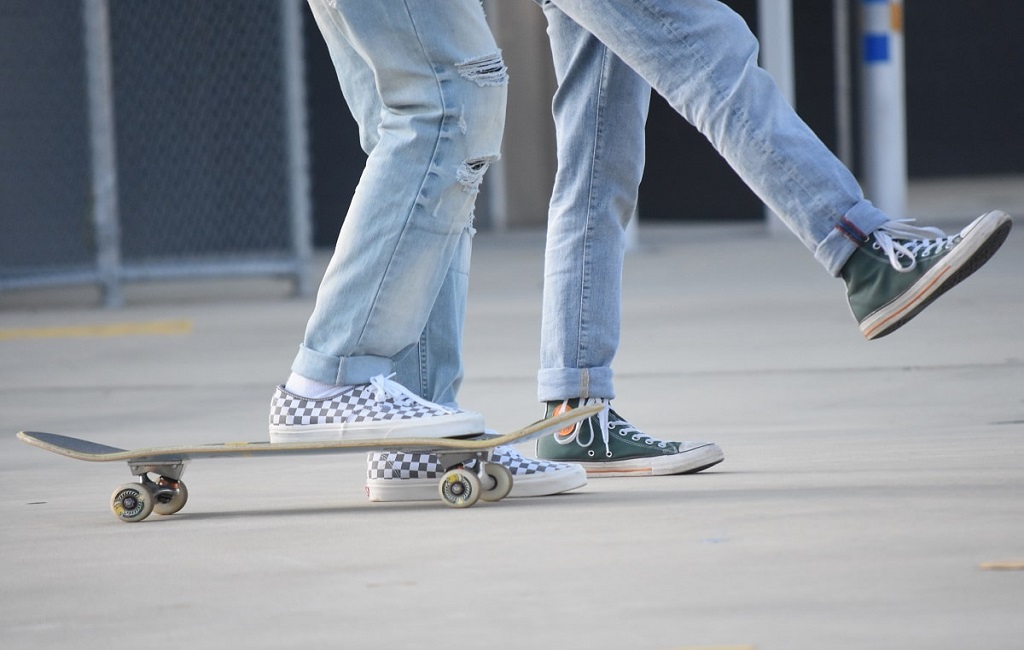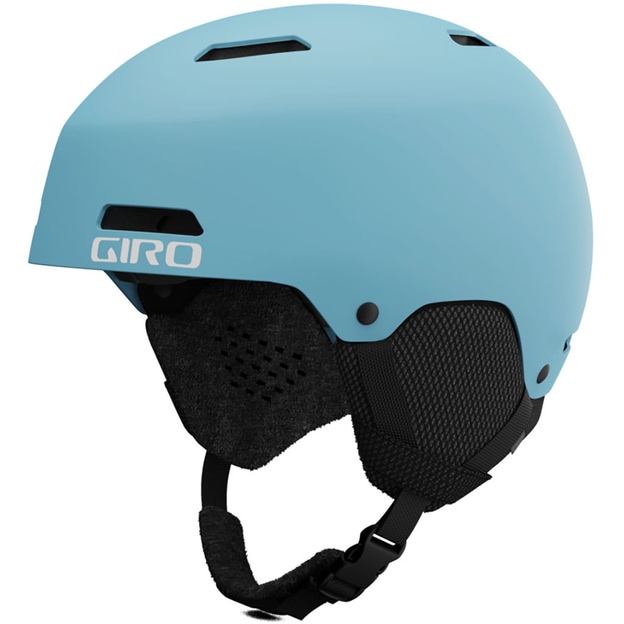Hey there, fellow parents! So, your kid’s caught the skateboarding bug, huh? Maybe you’re stoked they’re embracing the skater life, or maybe you’re a little nervous about the inevitable scrapes and bruises. Either way, you’re in the right place. Let’s dive into how to support your child in skateboarding, and be the most awesome skateboarding parent ever!
Why Skateboarding is Rad for Kids
First off, let’s talk about why skateboarding is pretty darn cool. It’s not just about ollies and kickflips. According to a study in the Journal of Sport and Health Science, skateboarding can boost your child’s physical and mental health. Think about improved balance, coordination, and cardiovascular fitness. Plus, it teaches perseverance, resilience, and how to overcome challenges. Pretty neat, right?
Gear Up: Safety First!
We all want our kids to stay safe, and skateboarding does come with its risks. But hey, riding a bike has risks too, right? The key is proper safety gear.
Helmet Hair, Don’t Care
A helmet is non-negotiable. No ifs, ands, or buts about it. Make sure it fits snugly and comfortably. Let your child pick out a cool design to get them excited about wearing it.
Padded Up and Ready to Roll
Besides a helmet, elbow pads, knee pads, and wrist guards are your child’s best friends. They’ll cushion those falls and help prevent serious injuries.
Shoes Made for Shredding
Skate shoes are designed for grip and board control. They might seem a bit pricey, but trust me, they make a difference. Plus, they look super cool!
Finding the Right Board
Now for the fun part – the skateboard itself! Don’t just grab the first one you see at the store.
Size Matters
A board that’s too big or too small will make it harder for your child to learn. A good rule of thumb is to have them stand on the board – their feet should be roughly shoulder-width apart and comfortable.
Complete vs. Custom
You can buy a complete skateboard (already assembled) or build a custom one. For beginners, a complete is the way to go. As your child progresses, they might want to customize their setup.
Where to Learn: From Driveway to Skatepark
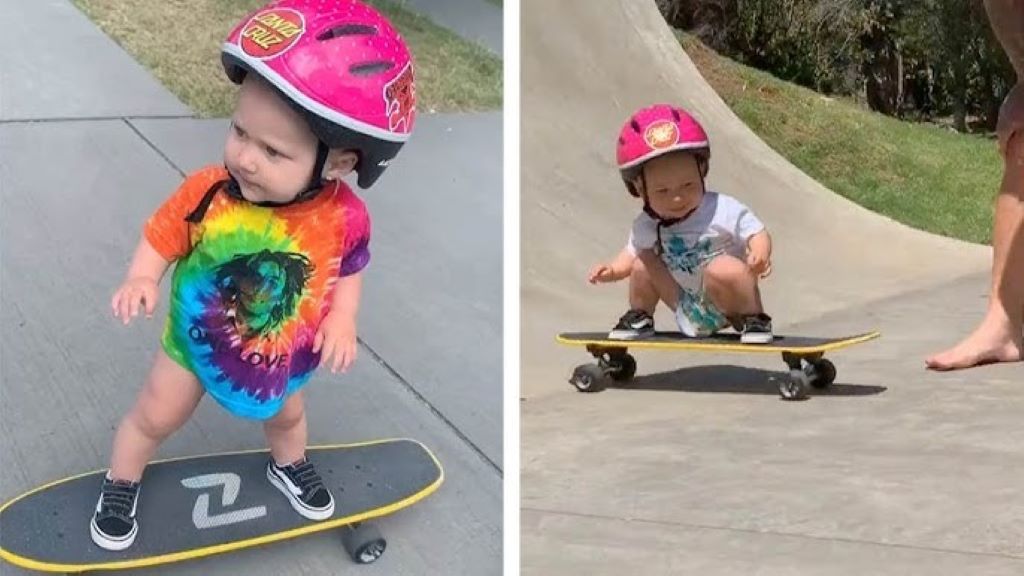
Where’s the best place for your child to start their skateboarding journey? There are a few options!
Home Sweet Home
Your driveway or a quiet street with smooth pavement is a great starting point. It’s familiar, comfortable, and free from distractions.
Skateparks: A Skater’s Paradise
Once your child has mastered the basics, take them to a skatepark. It’s a fantastic place to learn new tricks, meet other skaters, and be part of the community.
Lessons: Learn from the Pros
Consider signing your child up for skateboarding lessons. A good instructor can teach them proper techniques, build confidence, and accelerate their progress.
Mastering the Basics: One Step at a Time
Learning to skateboard takes time and patience. Encourage your child to start with the basics.
Finding Their Stance
First things first, figure out their stance. Are they “regular” (left foot forward) or “goofy” (right foot forward)? A simple way to find out is to have them stand with their feet together and give them a gentle nudge forward. The foot they put out first is usually their lead foot.
Pushing and Balancing
Next up, practice pushing. Start on a flat surface and have them push off with their back foot while balancing on the board. It might feel wobbly at first, but they’ll get the hang of it.
Turning and Stopping
Once they’re comfortable pushing, teach them how to turn by leaning. For stopping, they can use their back foot to drag on the ground (like a brake) or step off the board.
Overcoming Fear and Frustration
Skateboarding can be challenging, and your child might get frustrated or scared at times. That’s normal!
Celebrate the Small Wins
Every milestone, no matter how small, deserves to be celebrated. Did they manage to stand on the board without falling? High five! Did they roll a few feet? Awesome! Positive reinforcement goes a long way.
Patience is Key
Learning new tricks takes time and effort. Remind your child that everyone progresses at their own pace. Encourage them to keep practicing and not give up.
Turning Falls into Lessons
Falls are inevitable in skateboarding. Instead of getting upset, help your child see them as learning opportunities. What went wrong? How can they avoid it next time?
Building Confidence and Resilience
Skateboarding isn’t just about physical skills; it’s also about mental toughness.
Embrace the Challenges
Encourage your child to embrace challenges and step outside their comfort zone. Trying new tricks and pushing their limits helps build confidence and resilience.
The Power of Perseverance
Learning to skateboard teaches valuable life lessons about perseverance and not giving up. It shows them that with dedication and hard work, they can achieve their goals.
Nurturing a Love for Skateboarding
Here’s the thing: skateboarding should be fun! Here’s how to keep the stoke alive:
Make it a Family Affair
Why not join in on the fun? Even if you’ve never skateboarded before, give it a try! It’s a great way to bond with your child and show them that you support their passion.
Skate Trips and Adventures
Plan some fun skate trips! Visit different skateparks, check out local skate shops, or even go on a skateboarding vacation.
Support Their Skate Community
Encourage your child to connect with other skaters. Whether it’s at the skatepark, online forums, or local events, being part of a community can foster their love for skateboarding.
Beyond the Board: The Bigger Picture
Skateboarding can open up a whole world of opportunities for your child.
Creativity and Self-Expression
Skateboarding is a form of self-expression. Encourage your child to develop their style and find what makes their skateboarding unique.
Friendships and Community
The skateboarding community is known for its inclusivity and camaraderie. Your child can forge strong friendships and feel like they belong to something special.
Future Paths: From Hobby to Career
Who knows, maybe your child’s passion for skateboarding could lead to a career! There are many paths they could explore, from professional skateboarding to photography, filmmaking, or even starting their skate brand.
You Might Enjoy: Top 5 Mistakes to Avoid When Using Skateboard Risers
Fueling the Passion: Nutrition and Rest
Just like any sport, skateboarding requires energy and focus.
Healthy Eating Habits
Make sure your child is eating a balanced diet with plenty of fruits, vegetables, and lean protein to fuel their skateboarding sessions.
The Importance of Rest
Rest and recovery are crucial for preventing injuries and allowing muscles to repair. Make sure your child gets enough sleep and takes breaks when needed.
Dealing with Injuries: Bumps and Bruises
Let’s face it, falls and injuries are part of the skateboarding journey.
First Aid Essentials
Keep a well-stocked first aid kit handy. Learn basic first aid for common skateboarding injuries like cuts, scrapes, and sprains.
When to Seek Medical Attention
If your child experiences a serious injury, don’t hesitate to seek medical attention. Trust your gut instinct – if something seems off, it’s always better to be safe than sorry.
A Final Word of Encouragement
Supporting your child in skateboarding is an incredible journey. You’ll get to witness their growth, not just as a skater, but as a person. So, cheer them on, celebrate their achievements, and be their biggest fan. And who knows, maybe you’ll even catch the skateboarding bug yourself!
It Might be Helpful: Skateboard for Kids: 5 Cool Picks for Junior Shredders!
Conclusion
To wrap things up, remember that supporting your child in skateboarding is about more than just buying them a board and hoping for the best. It’s about fostering their passion, encouraging their growth, and being their biggest cheerleader. By providing them with the right gear, a safe environment to learn, and a supportive community, you can help them develop not only as skaters but as individuals. So, embrace the journey, celebrate the milestones, and enjoy the ride!

